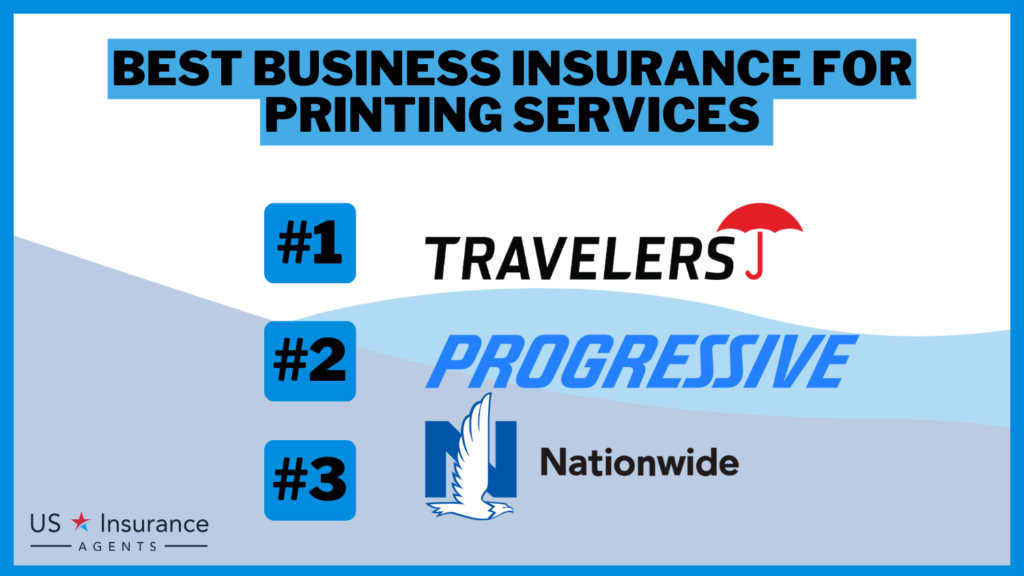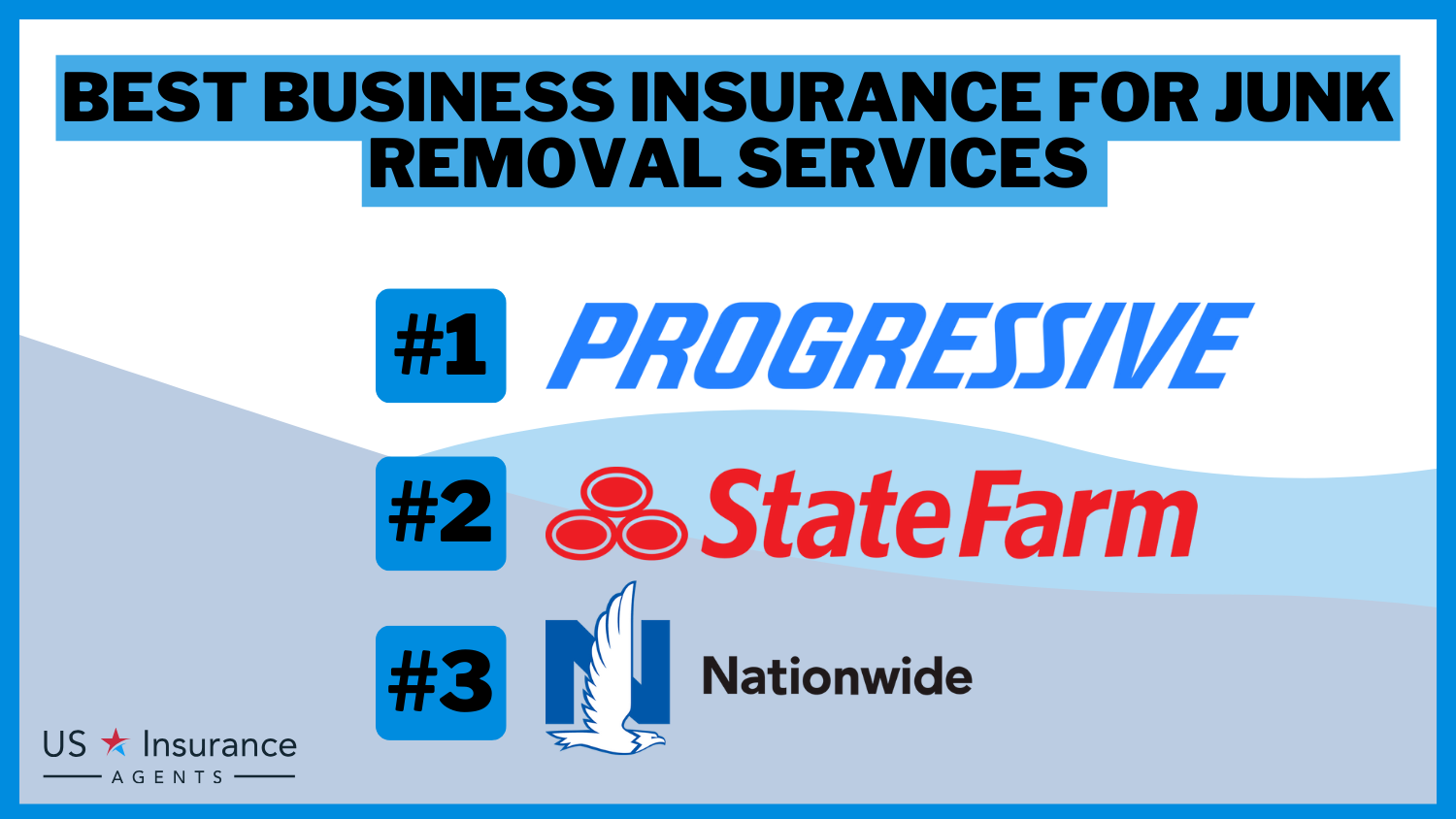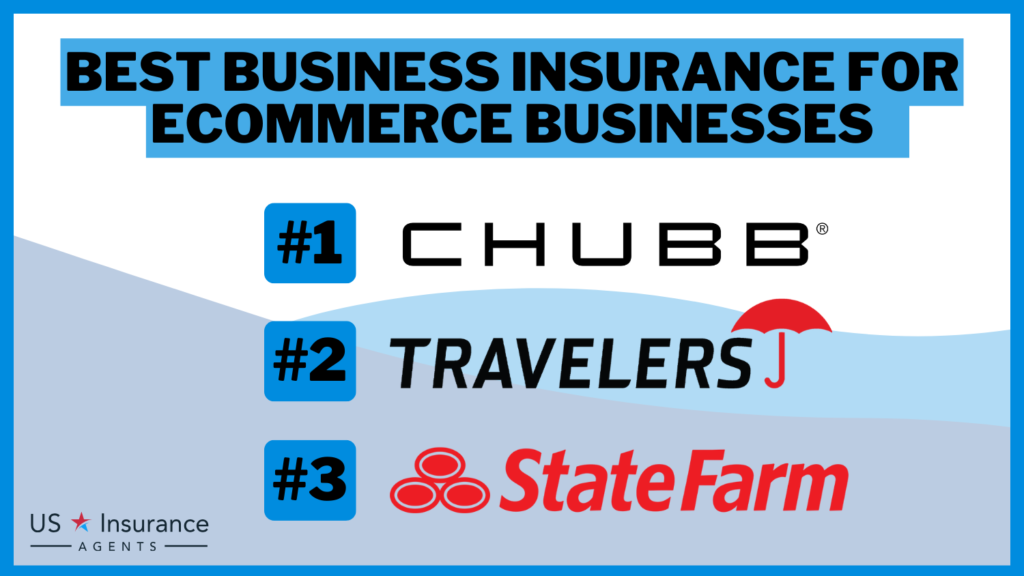Best Business Insurance for Clothing Retail Stores (2026)
Discover the importance of insurance for clothing retail stores. Learn about the types of coverage needed, cost considerations, and steps to obtain insurance. Explore real-life case studies showcasing the benefits of insurance. Get answers to frequently asked questions in this comprehensive guide.
Read more Secured with SHA-256 Encryption






Table of Contents
Table of Contents


Licensed Insurance Producer
Dani Best has been a licensed insurance producer for nearly 10 years. Dani began her insurance career in a sales role with State Farm in 2014. During her time in sales, she graduated with her Bachelors in Psychology from Capella University and is currently earning her Masters in Marriage and Family Therapy. Since 2014, Dani has held and maintains licenses in Life, Disability, Property, and Casualt...
Dani Best


Sr. Director of Content
Sara Routhier, Senior Director of Content, has professional experience as an educator, SEO specialist, and content marketer. She has over 10 years of experience in the insurance industry. As a researcher, data nerd, writer, and editor, she strives to curate educational, enlightening articles that provide you with the must-know facts and best-kept secrets within the overwhelming world of insurance....
Sara Routhier


Licensed Insurance Agent
Brandon Frady has been a licensed insurance agent and insurance office manager since 2018. He has experience in ventures from retail to finance, working positions from cashier to management, but it wasn’t until Brandon started working in the insurance industry that he truly felt at home in his career. In his day-to-day interactions, he aims to live out his business philosophy in how he treats hi...
Brandon Frady
Updated January 2025
- Insurance is essential for clothing stores and boutiques to protect against common risks such as burglary, fires, customer accidents, and employee injuries.
- Business insurance policies like a Business Owner’s Policy (BOP), general liability insurance, workers’ compensation insurance, cyber liability insurance, and commercial auto insurance provide comprehensive coverage for different aspects of your clothing store.
- Finding affordable coverage is possible by comparing quotes from top-rated providers. Insureon offers a simple online application process that provides free quotes and guidance from licensed agents.
Running a clothing store or boutique comes with its own set of risks and challenges. From the threat of burglary to customer accidents and employee injuries, it’s crucial to have the right insurance coverage in place.
In this article, we’ll explore why clothing stores need insurance, the types of insurance they require, factors that affect insurance costs, and how to obtain coverage for your business.
Factors to Consider Why Getting Covered on Your Clothing Business Is A Must
Managing clothing retail store comes with inherent risks and uncertainties that can potentially disrupt your business operations and financial stability. From unexpected accidents to thefts and property damage, there are several reasons why it’s crucial to have adequate insurance coverage for your clothing store.
In this section, we will delve into the key reasons why obtaining insurance is of utmost importance for clothing retail stores.
Obtaining insurance for your clothing retail store is not just a formality; it is a vital step in protecting your business from various risks and uncertainties. From safeguarding your property and inventory to mitigating legal liabilities and ensuring employee safety, insurance coverage provides the necessary financial security and peace of mind.
By investing in the right policies, you demonstrate your commitment to your business’s resilience and growth, enabling you to navigate unforeseen challenges with confidence.
Free Business Insurance Comparison
Compare Quotes From Top Companies and Save
Secured with SHA-256 Encryption
Comprehensive Insurance Coverage for Clothing Retailers: Safeguarding Your Business and Assets
Clothing retailers face unique risks and challenges that necessitate specific types of insurance coverage. From protecting against property damage to addressing liability concerns, having the right insurance policies in place is crucial for the long-term success and stability of your clothing retail business.
In this section, we will explore the key types of insurance that are essential for clothing retailers.
- Property Insurance: Property insurance is a fundamental coverage for clothing retailers. It protects your physical assets, such as your store building, inventory, fixtures, and equipment, against various risks such as fire, vandalism, theft, or natural disasters. Property insurance helps cover the cost of repairs or replacement of damaged or stolen property, ensuring that your business can recover and continue operating smoothly.
- General Liability Insurance: General liability insurance is essential for clothing retailers as it protects against third-party claims of bodily injury, property damage, or personal injury. For example, if a customer slips and falls in your store, general liability insurance can cover their medical expenses and any legal costs associated with the incident. This coverage also applies to instances where your products cause harm or if someone accuses your business of libel or slander.
- Product Liability Insurance: As a clothing retailer, you may face potential product liability risks. Product liability insurance provides coverage in case a customer experiences harm or injury due to a defect in one of your clothing products. This coverage helps cover legal expenses, medical costs, and potential settlements arising from such incidents, ensuring that your business is protected from substantial financial liabilities.
- Workers’ Compensation Insurance: If your clothing retail store has employees, workers’ compensation insurance is typically required by law in most states. It provides coverage for work-related injuries or illnesses that employees may sustain while on the job. Workers’ compensation insurance helps cover medical expenses, rehabilitation costs, and a portion of lost wages for injured employees. By having this coverage, you comply with legal requirements and demonstrate your commitment to providing a safe work environment.
- Business Interruption Insurance: Business interruption insurance is crucial for clothing retailers, especially in the event of unforeseen circumstances that disrupt your operations, such as fires, natural disasters, or other covered perils. This coverage helps compensate for lost income and ongoing expenses during the period when your store is unable to operate. It provides financial support to cover rent, employee salaries, and other necessary costs, ensuring that your business can weather the storm and resume normal operations as quickly as possible.
- Cyber Liability Insurance: In today’s digital age, clothing retailers store sensitive customer data, such as credit card information, online. Cyber liability insurance protects your business in the event of a data breach or cyberattack. It covers the costs associated with notifying affected customers, recovering compromised data, legal expenses, and potential damages resulting from the breach. This coverage helps safeguard your reputation and financial stability in the face of increasing cyber threats.
Clothing retailers require a range of insurance coverages to adequately protect their business, assets, employees, and customers. From property and liability insurance to workers’ compensation, business interruption, and cyber liability insurance, each type of coverage addresses specific risks and vulnerabilities. By investing in comprehensive insurance policies, you can mitigate potential financial losses, ensure business continuity, and demonstrate your commitment to the well-being of your employees and customers.
Understanding the Cost of Insurance for Clothing Retail Stores
Determining the cost of insurance for your clothing retail store involves various factors that insurance providers take into account when calculating premiums. While the specific cost will vary depending on the unique characteristics of your business, understanding the key elements that influence insurance pricing can help you estimate potential costs.
In this section, we will explore the factors that can impact the cost of coverage for clothing retail stores.
- Size and Location of the Store: The size and location of your clothing retail store play a significant role in determining insurance costs.
- Value of Inventory and Assets: The value of your clothing inventory and assets is a crucial factor in insurance pricing. Insurance providers consider the total worth of your merchandise and the replacement cost of your store’s fixtures, equipment, and furniture.
- Types of Coverage Needed: The specific types of insurance coverage you choose for your clothing retail store will impact the cost. Standard coverage options such as property insurance, general liability insurance, and workers’ compensation insurance have associated costs based on the coverage limits and deductibles selected.
- Claims History and Risk Management Practices: Insurance providers assess your claims history and risk management practices when determining premiums. A history of frequent or severe claims may result in higher premiums due to the perceived higher risk.
- Deductibles and Coverage Limits: The deductibles and coverage limits you choose for your insurance policies can influence the cost of coverage.
Read more: Best Business Insurance for Furniture Stores
The cost of insurance coverage for clothing retail stores can vary significantly depending on factors such as store size, location, inventory value, chosen coverage types, claims history, and risk management practices. It is recommended to work with insurance providers who specialize in serving retail businesses to obtain accurate quotes tailored to your specific needs.
Obtaining Insurance for Clothing Retail Stores: A Step-by-Step Guide
The process of obtaining insurance involves several steps, from gathering necessary information to comparing quotes and finalizing your policy. In this section, we will provide a step-by-step guide on how to obtain insurance for your clothing retail store.
- Assess Your Insurance Needs: Begin by assessing your insurance needs based on the specific requirements and risks associated with your clothing retail store. Consider factors such as the value of your inventory, store location, number of employees, and desired coverage types. This evaluation will help you determine the types and levels of coverage required to adequately protect your business.
- Research Insurance Providers: Conduct thorough research to identify insurance providers specializing in serving the needs of clothing retail stores. Look for companies with expertise in the retail industry and a track record of providing reliable coverage. Utilize online resources, seek recommendations from fellow business owners, or consult with an insurance broker to compile a list of potential providers.
- Obtain Multiple Quotes: Contact the insurance providers on your list and request quotes for the coverage you require. Provide them with accurate and detailed information about your clothing retail store, including its size, location, inventory value, and any specific risk factors. Obtaining multiple quotes will allow you to compare coverage options, premiums, and policy terms, helping you make an informed decision.
- Review and Compare Quotes: Carefully review each insurance quote you receive, paying attention to coverage limits, deductibles, exclusions, and any additional services or benefits offered. Compare the quotes side by side to assess the value provided by each policy. Consider not only the cost but also the comprehensiveness of coverage and the reputation and financial stability of the insurance provider.
- Consult with an Insurance Professional: If you have any questions or concerns about the insurance quotes or policies, consult with an insurance professional or broker who specializes in commercial insurance for retail businesses. They can provide expert advice, clarify policy details, and help you make an informed decision based on your unique needs.
- Finalize Your Policy: Once you have selected the insurance provider and policy that best meets your needs, contact the provider to finalize the policy. They will guide you through the application process, which typically involves completing the necessary paperwork, providing required documentation, and submitting payment for the premium. Review the policy documents thoroughly before signing to ensure that they accurately reflect the coverage you agreed upon.
- Regularly Review and Update Your Coverage: Insurance needs can change over time as your clothing retail store evolves. It is essential to regularly review your coverage with your insurance provider to ensure that it remains adequate and up to date. Inform your provider of any significant changes in your business, such as expansion, new locations, or changes in inventory value, so they can adjust your coverage accordingly.
Regularly reviewing and updating your coverage ensures that it remains relevant and aligned with your evolving business needs. Remember, the right insurance coverage provides peace of mind and a solid foundation for the long-term success of your clothing retail store.
Free Business Insurance Comparison
Compare Quotes From Top Companies and Save
Secured with SHA-256 Encryption
Case Studies: Real-Life Examples Showcasing the Importance of Insurance in Clothing Retail
- Case Study 1: Boutique Burglary
Scenario: “Fashion Haven” is a popular boutique located in a bustling shopping district. One unfortunate night, the boutique fell victim to a burglary, resulting in significant losses. The burglars made off with a substantial amount of high-end clothing inventory and caused damage to the store’s fixtures and displays.
Insurance Coverage: Fortunately, “Fashion Haven” had comprehensive insurance coverage in place. Their policy included property insurance, which covered the stolen inventory and the cost of repairs to the damaged fixtures. The coverage provided financial assistance to replace the stolen merchandise and restore the store to its original state.
- Case Study 2: Slip and Fall Incident
Scenario: “Style Junction” is a medium-sized clothing store known for its trendy fashion collections. One day, a customer slipped on a wet spot near the store’s entrance and sustained injuries, resulting in medical expenses and a potential lawsuit.
Insurance Coverage: “Style Junction” had general liability insurance as part of their insurance portfolio. The policy provided coverage for bodily injury claims and legal defense costs. When the slip and fall incident occurred, the insurance coverage stepped in to cover the injured customer’s medical expenses and legal fees associated with the claim.
- Case Study 3: Data Breach Concerns
Scenario: “Online Couture” is a successful online clothing retailer that handles a significant volume of customer data, including personal and financial information. The store became increasingly concerned about the rising threat of data breaches and cyberattacks in the retail industry.
Insurance Coverage: To mitigate the risk of data breaches, “Online Couture” invested in cyber liability insurance. This coverage protected the store in the event of a data breach, covering the costs associated with breach response, customer notification, forensic investigations, and potential legal liabilities.
The above case studies are fictional and provided for illustrative purposes only. The names of businesses and incidents are purely hypothetical.
In Summary: The Vital Importance of Insurance for Clothing Retail Stores
In conclusion, insurance plays a critical role in safeguarding clothing retail stores from various risks and uncertainties. From burglaries and customer accidents to cyber threats and property damage, the retail industry is susceptible to a wide range of potential challenges. By obtaining the right insurance coverage, clothing retail store owners can protect their business, assets, and financial stability.
Insurance is not just a legal requirement in many cases but a crucial investment that provides peace of mind and safeguards the long-term success of clothing retail stores. By prioritizing insurance coverage, store owners can focus on delivering exceptional customer experiences, growing their business, and navigating the dynamic landscape of the retail industry with confidence.
Frequently Asked Questions
What types of insurance do clothing retail stores typically need?
Clothing retail stores typically need several types of insurance coverage, including general liability insurance to protect against customer injuries or property damage, property insurance to cover the store’s physical assets, workers’ compensation insurance to provide benefits for injured employees, cyber liability insurance to safeguard against data breaches, and commercial auto insurance if the store owns vehicles for business purposes.
Is workers’ compensation insurance necessary for clothing retail stores?
Yes, in most states, workers’ compensation insurance is required for clothing retail stores that have employees. This coverage provides benefits to employees who suffer work-related injuries or illnesses and helps protect the store from potential lawsuits related to workplace accidents.
How can I find affordable insurance coverage for my clothing retail store?
To find affordable insurance coverage for your clothing retail store, it is recommended to compare quotes from multiple insurance providers. You can utilize online platforms or work with insurance brokers who specialize in commercial insurance for retail businesses. By comparing quotes, you can identify competitive rates and coverage options that suit your specific needs.
Are there specific insurance considerations for online clothing retailers?
Yes, online clothing retailers have specific insurance considerations. In addition to general liability and property insurance, they should prioritize cyber liability insurance to protect against data breaches and online security threats. E-commerce businesses may also need additional coverage for shipping and product liability.
Can I adjust my insurance coverage as my clothing retail store grows?
Yes, it is essential to regularly review and adjust your insurance coverage as your clothing retail store grows. Factors such as expansion, changes in inventory value, or the addition of new locations may require modifications to your coverage. Stay in touch with your insurance provider or broker to ensure that your insurance adequately reflects your evolving business needs.
Get a FREE Quote in Minutes
Insurance rates change constantly — we help you stay ahead by making it easy to compare top options and save.




